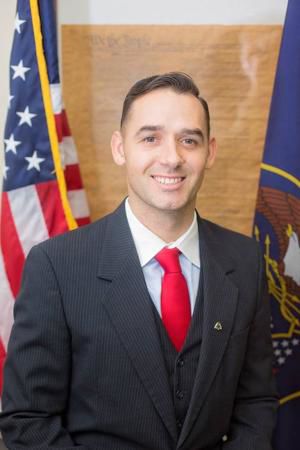Some information may be outdated.
Grand County Commissioner Curtis Wells is ending his term this winter, having chosen not to seek reelection this fall. However, his farewell to the county commission is not a goodbye to public service. Wells was selected to serve on Governor-elect Spencer Cox’s Rural Policy Subcommittee, crafting policies and recommendations for economic development in rural Utah.
“I’ve worked with both the Governor-elect and the Lieutenant Governor-elect on many issues in the past and have very much appreciated our working relationships,” Wells told the Moab Sun News in an email.
The subcommittee recently submitted a confidential report to the newly elected state executives, and Wells said he is working on a follow-up report for Cox’s Senior Advisor of Rural Affairs, Stephen Lisonbee.
Cox focused on rural Utah as part of his successful campaign platform for Utah governor. As lieutenant governor, Cox co-chaired Governor Gary Herbert’s Rural Partnership Board, on which Wells serves as an at-large member. Moab Mayor Emily Niehaus also serves on the board, representing the Utah League of Cities and Towns, as does Lisonbee.
The Rural Partnership Board was created to advise the governor on rural economic development and planning. In 2017, Herbert introduced his 25K Rural Jobs Initiative, a push to create that number of jobs for rural Utahns within the next four years. According to the Rural Partnership Board’s 2019 annual report, the state had achieved 79% of that goal at that time. The board considers 25 of Utah’s 29 counties to be rural.
The same report included status updates on efforts to nurture economies in rural Utah and recommendations for future actions. Various efforts identified, both underway and suggested for future implementation, included: improvement of broadband infrastructure to open more opportunities for online sales and employment; regional business summits; tax policies to encourage infrastructure projects and expanded employment opportunities in rural areas; and transient room tax reform to allow more flexibility in how those funds are spent. Other highlighted issues included affordable housing, fostering of rural leadership, and maintaining grant programs for rural businesses.
“Diversified economic growth and infrastructure planning for rural Utah in the 21st century has been my primary focus,” Wells said of what he sees as priorities for rural Utah. He expressed appreciation for Cox’s request for “bold ideas for policy and reforms.”
In a Dec. 7 interview on Red Rock 92 FM, a local radio station, Wells emphasized the opportunities associated with expanded broadband internet access, such as attracting a remote workforce as well as companies in high-paying industries interested in relocating to areas with a high quality of life, like Moab. He also praised Cox’s plan for a “strategic mineral reserve,” predicting an opportunity for development of natural resources, like vanadium, in southeast Utah. Later in the interview, Wells hinted at transportation and infrastructure projects, and emphasized collaboration between rural counties. Wells told the Moab Sun News that he is the sole representative of southeast Utah on the Rural Policy Subcommittee.
“To my knowledge, I’m carrying the weight for southeast Utah regarding rural policy priorities. I’m very appreciative for the opportunity and it’s a big responsibility,” he wrote.
Asked about his plans for future public service, he declined to give specifics.
“Right now I’m just looking forward to focusing on my business interests, new projects, and my little girls,” he said. However, he added that he has put some thought into analyzing future potential opportunities for public service.
“I do believe there is a growing need for collaborative planning, policy, and quality leadership in our region,” he said. “The community will be better served by leadership with a focus on adaptive and innovative solutions, as opposed to chasing the mirage of rewinding Moab’s clock to 10-15 years ago. There’s plenty of room for everyone in this next economic and social chapter in Moab without the divisiveness and the fractures in the community.”
Wells had words of appreciation for his time serving on the Grand County Commission.
“I just want to express a heartfelt thank you and my sincere gratitude to the citizens that supported my run for the Grand County Board of Commissioners,” he said. “It is my hope that I served you well.”
Appreciate the coverage? Help keep local news alive.
Chip in to support the Moab Sun News.





